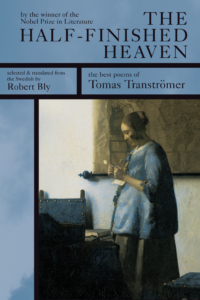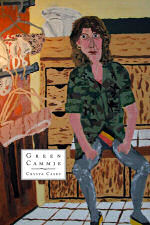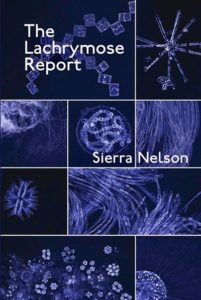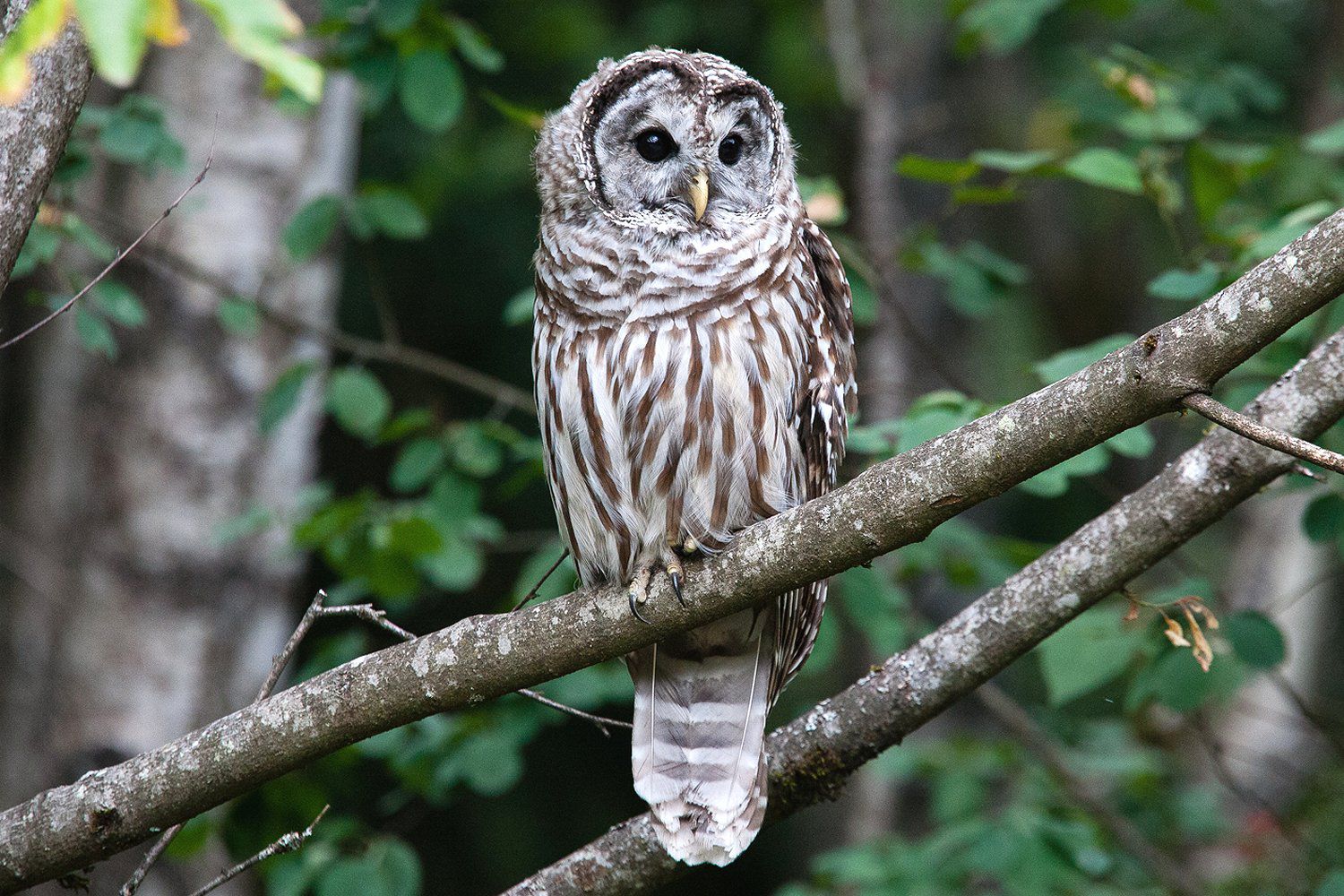 THE HALF-FINISHED HEAVEN: SELECTED POEMS, Tomas Tranströmer. Trans. Robert Bly. Graywolf Press, 250 Third Avenue North, Suite 600, Minneapolis, Minnesota 55401, 2001, 2017, 118 pages, $16 paper, https://www.graywolfpress.org/.
THE HALF-FINISHED HEAVEN: SELECTED POEMS, Tomas Tranströmer. Trans. Robert Bly. Graywolf Press, 250 Third Avenue North, Suite 600, Minneapolis, Minnesota 55401, 2001, 2017, 118 pages, $16 paper, https://www.graywolfpress.org/.
Tranströmer won the Nobel Prize for Literature in 2011, and his influence is pervasive. But he is not merely a serious and learned poet, he is also wry and funny and readable. In his 2017 introduction, Robert Bly writes of Tranströmer:
“…he was a genius–for things in human communication that are half-sensed, half-understood, only partially risen into consciousness, liable, like a fish, to disappear into the lake a moment later. If you are addicted to certainty, there’s no point in going toward his poems–they’ll just lead you into islands that disappear a moment later.” (xxiv)
I purchased my copy of this expanded edition of his selected poems when I was in San Francisco last fall, at City Lights Booksellers. I’ve wrestled with what to include here, and have decided on one of the longer poems.
Out in the Open
I.
Late autumn labyrinth.
At the entry to the woods a thrown-away bottle.
Go in. Woods are silent abandoned houses this time of year.
Just a few sounds now: as if someone were moving twigs around carefully with pincers
or as if an iron hinge were whining feebly inside a thick trunk.
Frost has breathed on the mushrooms and they have shriveled up.
They look like objects and clothing left behind by people who’ve disappeared.
It will be dark soon. The thing to do now is to get out
and find the landmarks again: the rusty machine out in the field
and the house on the other side of the lake, a reddish square intense as a bouillon cube.
II.
A letter from America drove me out again, started me walking
through the luminous June night in the empty suburban streets
among newborn districts without memories, cool as blueprints.
Letter in my pocket. Half-mad, lost walking, it is a kind of prayer.
Over there evil and good actually have faces.
For the most part with us it’s a fight between roots, numbers, shades of light.
The people who run death’s errands for him don’t shy from daylight.
They rule from glass offices. They mill about in the bright sun.
They lean forward over a desk, and throw a look to the side.
Far off I found myself standing in front of the new buildings.
Many windows flowed together there into a single window.
In it the luminous night sky was caught, and the walking trees.
It was a mirrorlike lake with no waves, turned on edge in the summer night.
Violence seemed unreal
for a few moments.
III.
Sun burning. The plane comes in low
throwing a shadow shaped like a giant cross that rushes over the ground.
A man is sitting the the field poking at something.
The shadow arrives.
For a fraction of a second he is right in the center of the cross.
I have seen the cross hanging in the cool church vaults.
At times it resembles a split-second snapshot of something
moving at tremendous speed.
 GREEN CAMMIE, Crysta Casey. Floating Bridge Press, 909 NE 43rd St, #205, Seattle, WA 98105, 2010. 47 pages, $12 paper, www.floatingbridgepress.org.
GREEN CAMMIE, Crysta Casey. Floating Bridge Press, 909 NE 43rd St, #205, Seattle, WA 98105, 2010. 47 pages, $12 paper, www.floatingbridgepress.org.


 THE LACHRYMOSE REPORT,
THE LACHRYMOSE REPORT, 
 THE LOVELINESS OF THIS WORLD,
THE LOVELINESS OF THIS WORLD, 
 THE HALF-FINISHED HEAVEN: SELECTED POEMS,
THE HALF-FINISHED HEAVEN: SELECTED POEMS,